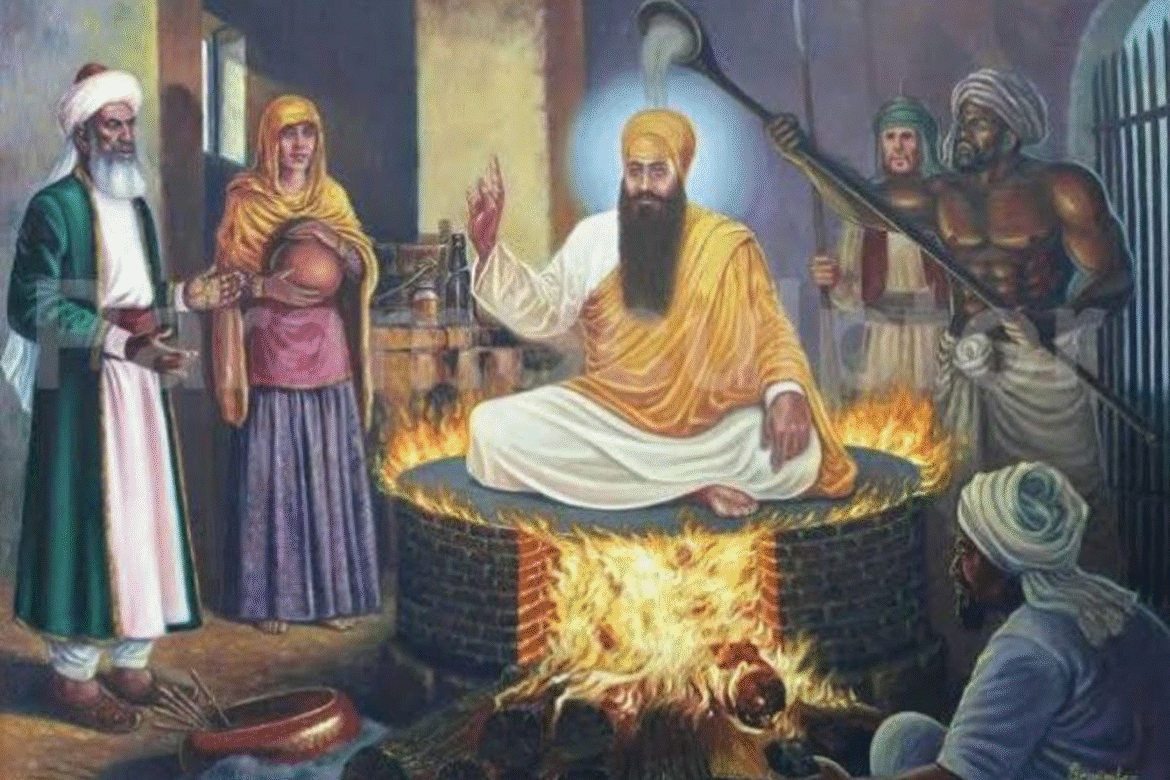AI Generated Summary
- The history of the Sikh faith is filled with martyrdoms, and it all began with the fifth Sikh Guru, Guru Arjun Dev Ji.
- Imagine the excruciating pain he must have endured, sitting on a burning iron plate amidst scorching heat — at a time when people hesitate even to step outside.
- He also composed Sukhmani Sahib, a sacred scripture that brings peace and is considered a jewel of all joys.
The history of the Sikh faith is filled with martyrdoms, and it all began with the fifth Sikh Guru, Guru Arjun Dev Ji. Guru Arjun Dev Ji compiled the Sri Guru Granth Sahib, which did not sit well with the Mughal emperor of that time. The Mughals, burning with jealousy at Guru Ji’s growing popularity, spread false claims that the scripture contained material against Islam. However, when Emperor Akbar came to know the greatness of the scripture, he expressed his regret by gifting 51 gold coins through Bhai Gurdas and Baba Buddha Ji.
After Akbar’s death, Jahangir became the ruler of Delhi. He was extremely intolerant and could not accept any religion other than his own. Guru Ji’s spiritual and social work displeased him as well. Under Jahangir’s orders, on 30 May 1606 AD, Guru Ji was brutally tortured in Lahore. He was made to sit on a burning hot iron plate while scalding hot sand was poured over his head until he attained martyrdom.
This marked the beginning of a long chain of martyrdoms in Sikh history. The oppression of the Mughal rulers continued, and Sikh Gurus and brave Sikh warriors kept raising their voices against tyranny, resulting in many more sacrifices for the faith.
Guru Arjun Dev Ji sat on the burning plate as if seated on a throne. At that moment, Guru Ji uttered the line:
“Tera bhana meetha lage, har naam padarth Nanak mange,”
meaning, “Sweet is Your will, O Lord; Nanak begs for the treasure of Your Name.”
This is why Guru Arjun Dev Ji is known as the embodiment of peace and the sovereign of martyrs. He also composed Sukhmani Sahib, a sacred scripture that brings peace and is considered a jewel of all joys. Reciting it is believed to bring comfort and spiritual happiness.
Guru Ji’s martyrdom is commemorated during the hot summer months. Imagine the excruciating pain he must have endured, sitting on a burning iron plate amidst scorching heat — at a time when people hesitate even to step outside. His devoted Sikhs tried to bring him cool, sweet water, but the oppressors did not even allow that. Since then, every year on his martyrdom day, ‘Chabeel’ (free sweetened cold water service) is organized by the Sikh community to honor his memory and sacrifice.




